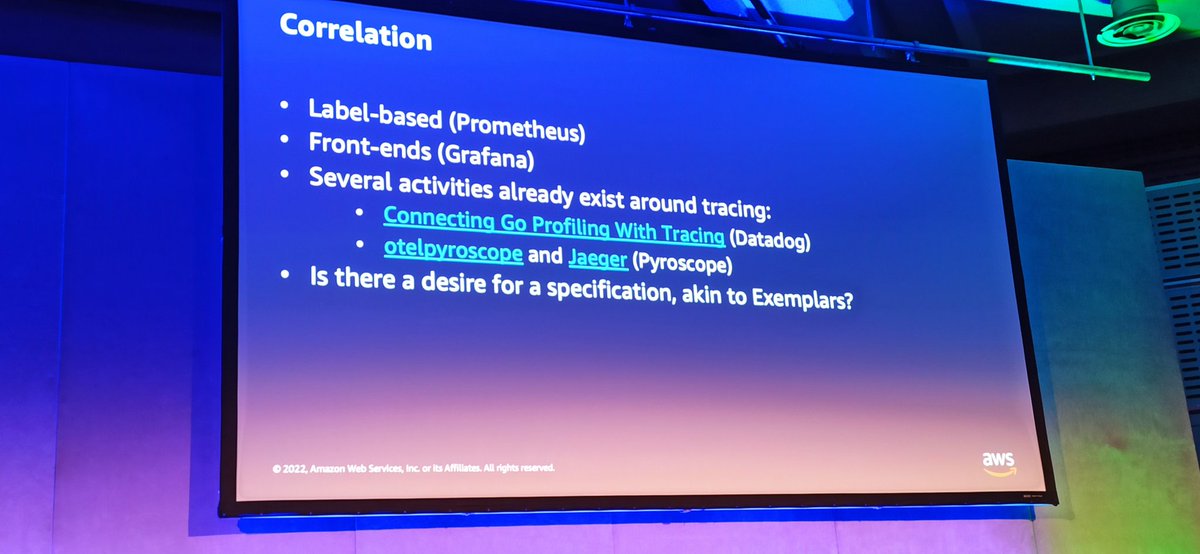
"Observability is the capability to continuously generate and discover actionable insights based on signals from the system under observation with the goal to influence that system" and that's for both people (eg debugging) and automation (eg autoscaling) @mhausenblas #QConLondon 

Observability can go beyond usual metrics, logs and traces: @mhausenblas introducing profiles and eBPF #QConLondon 





High-level architecture of Continuous Profiling, from agent and ingestion to frontend for visualisation. @mhausenblas #QConLondon 

Continuous Profiling with Parca, open source project, with concepts and query language very close to Prometheus. @mhausenblas #QConLondon 





Looking ahead, eBPF is becoming the unified collection method for profiles. Profiling standards seem to be converging towards pprof with its increasing support @mhausenblas #QConLondon 



Correlation remains a challenge with profiles, to link together all the different signal types, rather than dealing with multiple independent tools. @mhausenblas #QConLondon 

• • •
Missing some Tweet in this thread? You can try to
force a refresh















